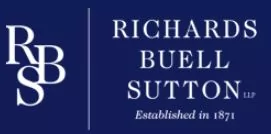Allegations of the negligent supervision of a teenage child can have many consequences for insurers, the least of which may be extensive coverage litigation. The Supreme Court of Canada has recently refused leave to appeal the Newfoundland and Labrador Court of Appeal decision in Dominion v. Hannam, 2013 NLCA 37. The decision interpreted a motorized vehicle "ownership, use or operation" exclusion clause and an exception for vehicles "you do not own" contained in a broad-form homeowner's insurance policy (the "Policy"). The refusal to grant leave seems to maintain the murkiness in Canadian jurisprudence surrounding claims of negligent supervision in the context of motor vehicle accidents and coverage for these types of claims pursuant to personal lines policies.
The Facts
Multiple actions were commenced following an ATV accident in a gravel pit. A teenage passenger sustained serious injuries after the ATV driver crashed into a piece of heavy equipment. The ATV was owned by Larry Hannam who permitted his teenage son, Jordan, to use the ATV. Jordan, in turn, authorized Ms. Squires, also a teenager, to use the ATV. Ms. Squires was driving with the teenage passenger when the accident occurred. The actions named various defendants including the driver and her parents, Mr. and Mrs. Hannam, Jordan, and the gravel pit owner. The allegations against the Hannams focused on motor vehicle owner's vicarious liability and failure on all their parts to supervise the use of the ATV. The ATV was not insured under the Hannam family's motor vehicle insurance policy though such insurance was available. The insurer sought a determination as to whether it had a duty to defend the Hannams.
The Ruling
The applications judge determined that the insurer owed a defence to the Hannams. The appeal court agreed, for different reasons, that there was a duty to defend Mrs. Hannam and Jordan, but found that Mr. Hannam was not entitled to a defence.
There was no question throughout the coverage proceedings that the claims against each Hannam family member fell within the grant of coverage. At issue was the application of two policy provisions: an exclusion clause for "ownership, use or operation" of motorized vehicles and an exception to this exclusion for "motorized vehicles you do not own". The applications judge, relying on motor vehicle insurance coverage cases, concluded that "use" of a motor vehicle did not include "the act of permitting another to operate a vehicle". The appeal court rejected this analysis. It determined that the actions of the insureds themselves in the context of the policy wording must be considered. Doing so, it found that all allegations regarding supervision, including providing consent to drive, entrustment and transfer of the ATV, arose from the "ownership, operation or use" of the ATV. The true nature of the allegations against the Hannams rendered the exclusion applicable. This determination however did not conclude the matter as the exception to the exclusion required consideration.
The exclusion contained an exception for "Motorized Vehicles You Do Not Own". The exception read: "You are insured against claims arising out of your use or operation of any motorized land vehicle...which you do not own". The terms "you" and "your" were defined policy terms that included: the named insured; that person's spouse; and the children of either. The argument surrounding the exception focused on whether vehicles "you do not own" required a singular or collective interpretation of "you". The insured argued it required a singular interpretation (i.e. it included only Mr. Hannam) while the insurer argued for a collective interpretation (i.e. it included all the Hannams).
The Court of Appeal extensively discussed past court decisions that have struggled with the proper interpretation of similar policy terms. Terms such as "you" and "your" are often used in plain language policies, seemingly interchangeably, as both defined terms and pronouns (ex. "your" may mean "one or you" or "any of you" or "all of you"). Given the ambiguity this mixed use creates, the court concluded it cannot be safely assumed that the word "your" has its defined, extended meaning wherever it appears in the Policy. The language of the exception thus gives rise to the possibility of coverage for Jordan and Mrs. Hannam. It does not for Mr. Hannam as the acknowledged owner of the ATV. No decision as to how this provision is to be interpreted was made by the court. For the purposes of assessing the duty to defend, it was sufficient that differing interpretations were possible.
Practical Considerations For Insurers
As we have previously published (see December 10, 2012) using plain language in insurance policies is a valuable exercise, however, the exercise does have its pitfalls. In this case, words used interchangeably in a policy as both a defined term and a part of everyday language created ambiguity which invariably were construed against the insurer.
Insurers and their claims examiners, in the context of determining duties to defend, are well advised to pay particular attention to use of pronouns such as "you" and "your" in making their determinations. A reading of Dominion v. Hannam will assist in understanding the frailties inherent in this type of policy wording.
Underwrites may wish to consider implementing greater usage of defined terms such as "Named Insured" and "Unnamed Insured" in policy language in order to avoid ambiguity.
Finally, it is notable that the NLCA has again followed the Ontario Court of Appeal lead on awarding "solicitor and client" costs rather than "party and party" costs to successful insureds in the context of duty to defend applications. Insurers should consider including express language in their policies that addresses cost consequences in the context of duty to defend disputes.
The content of this article is intended to provide a general guide to the subject matter. Specialist advice should be sought about your specific circumstances.


